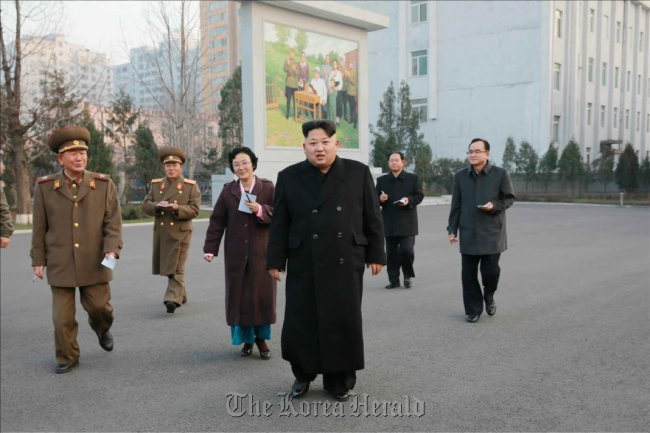North Korean leader Kim Jong-un has claimed the communist state has developed a hydrogen bomb, which may signal a significant advancement in its nuclear capabilities, though Seoul officials remain dubious of the claim’s veracity.
While inspecting a historic arms factory site in Pyongyang on Wednesday, Kim lauded its founder and his late grandfather Kim Il-sung for testing some of the country’s maiden weapons some 70 years ago, which made possible its transformation into a “powerful nuclear weapons state capable of detonating its self-defensive atomic and hydrogen bombs with which to firmly defend its sovereignty and the dignity of the people,” the official Korean Central News Agency reported Thursday.
The report appears to carry the young ruler’s first public mention of a hydrogen bomb, a technology Pyongyang is believed to have been striving to acquire, but yet to master.
Seoul’s military was skeptical of the capability, with an official saying, “It’s widely known that the North has been working on it, but it remains to be seen whether it has already achieved one, such as through a fresh nuclear test.”
An intelligence official reportedly portrayed Kim’s claim as “rhetoric,” noting that the community has been closely monitoring Pyongyang’s nuclear activities, but has no corroborating information. “We don’t believe that North Korea, which has not even succeeded in miniaturizing nuclear warheads, has the skills to build a hydrogen bomb.”
 |
|
This image carried by the Rodong Sinmun, North Korea`s ruling Workers` Party`s mouthpiece, shows leader Kim Jong-un (third from right) inspecting the Phyongchon Revolutionary Site in Pyongyang. (Yonhap) |
Speculation has repeatedly kindled over the Kim regime’s H-bomb capacity since it threatened a “new type of nuclear test” in March 2014. On Oct. 10 this year, it also hinted at its ongoing program, unveiling a “strategic rocket equipped with varied, miniaturized nuclear warheads” during a massive military parade marking the 70th anniversary of the establishment of the ruling Workers’ Party.
Experts have since raised the possibility of multiple explosions and the use of a uranium device, hydrogen bomb or “boosted fission weapon,” which they call a 1.5-generation atomic bomb.
In September, the Washington-based Institute for Science and International Security said what appeared to be a new “hot cell” facility possibly capable of churning out tritium was under construction at the North’s Yongbyon nuclear complex. The substance is essential to producing boosted-fission weapons, which is far more sophisticated and powerful than plutonium- or uranium-based devices the country had previously tested.
“Whether North Korea can make nuclear weapons using tritium is unknown, although we believe that it remains a technical problem North Korea still needs to solve. Solving this problem would likely require more underground nuclear tests,” the think tank said in the report.
By Shin Hyon-hee (heeshin@heraldcorp.com)

